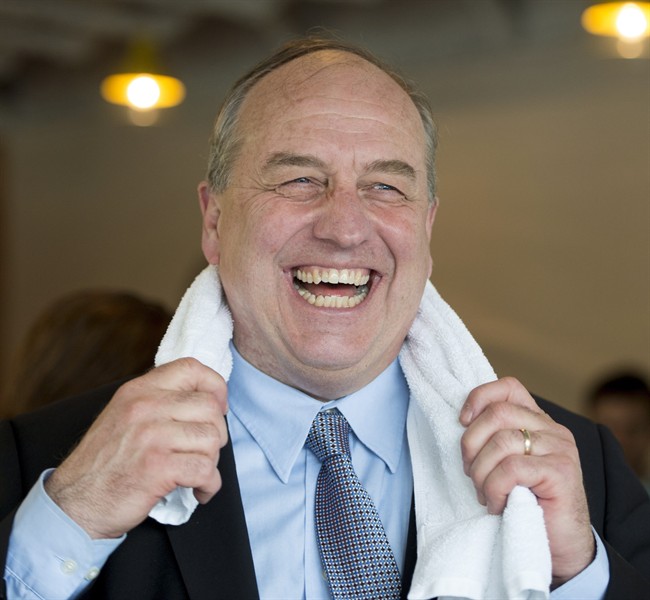How do B.C. politicians form a minority government?

“Carefully,” said one expert in political strategy.
At about 1 a.m., on the morning after the provincial election, the results showed the BC Liberals with 43 seats, the BC NDP with 41 and the Greens with three seats.
The seat count creates the conditions for a minority government, in which the Liberals would take the most seats and the Greens would hold the balance of power.
READ MORE: B.C. election 2017: Liberals, NDP battle in tight race, Greens win 3 seats
The 2017 election marks the first since 1952 that B.C. has voted in a minority government. And the results aren’t official; there are still votes left to be tallied.
But the process of swearing in a government nevertheless becomes more complicated in a minority situation.
In B.C.’s case, two parties can come together and then approach B.C. Lieutenant-Governor Judith Guichon about forming a government, Simon Fraser University Prof. Lindsay Meredith told Global News.
The situation puts the parties in a position to cut a deal — and the Greens would have plenty of clout in any arrangement, he added.
“In any coalition you give ground,” Meredith said.
“If you don’t, you collapse, the minority government hits the dust and you start again.”
He was less certain, however, of which parties would come together to form a government.
“On the other hand, policy-wise, they’re probably more in line than the Liberals would be, so where does that go?”
The issue of political donations is but one that could come up in any potential talks between the NDP and the Greens, he said.
READ MORE: The BC Greens have forced the Liberals and NDP to notice them: experts
The BC NDP pledged in their platform to ban corporate and union donations to political parties, set limits on individual contributions and forbid out-of-province contributions.
The BC Greens have made similar promises, but the issue nevertheless proved a sticking point between the parties on the campaign trail.
Weaver and Horgan were in a particularly heated exchange over the issue during the televised leaders’ debate; Weaver noted that the United Steelworkers Union was paying members of the BC NDP’s senior campaign staff.
Site C
The Site C dam could also prove a difficult point of discussion between the parties.
The BC NDP want the project to undergo a review by the B.C. Utilities Commission (BCUC); Weaver has promised to kill it.
“I don’t see any agreement where the Greens will give up,” Meredith said of Site C.
“If this goes the way it’s going now, these guys will say we’ve got a hell of a lot of clout here, and if we don’t play ball this whole thing is going to do down in flames.”










Comments